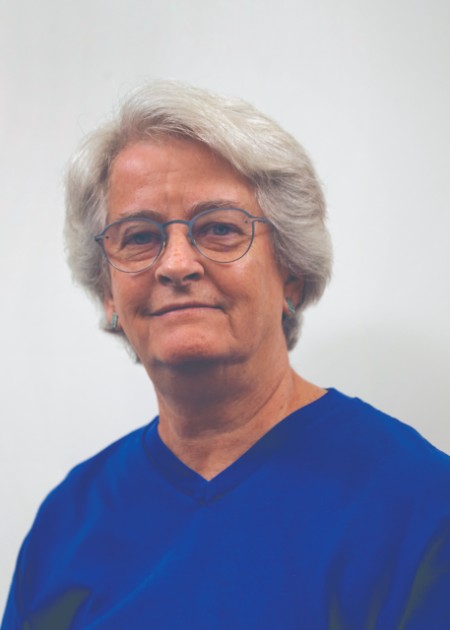
Lisa Evans
CAMP Rehoboth’s Interim Director
I sat down with Lisa Evans dring her first week as the new Interim Director of CAMP Rehoboth to see what was on her mind as she begins her journey with the organization. While I have witnessed firsthand the value Lisa brought to the role of Acting Manager over the past two months, this interview is designed to introduce our members and readers to the qualities that made Lisa our candidate-of-choice.
Wes Combs: Why have you made Rehoboth Beach your place to retire?
Lisa Evans: I started visiting Rehoboth in the mid 80s and in ‘92, my partner and I bought a small cottage on Henlopen Avenue. We went from being just summer weekenders to spending most weekends all year round. Our circle of friends grew, and Rehoboth became where our social lives were. The beach just kept evolving as our home and became the natural place for us to retire. Rehoboth is such a calming and easy place to be.
WC: What do you love about the Rehoboth area?
LE: Being part of a community always has been important to me. This community has felt very welcoming and comfortable. I do not think any of us here should take this oasis for granted, and it makes Rehoboth incredibly special.
WC: What attracted you to taking on this role?
LE: Being a part of something bigger than yourself and being able to be of service is what has attracted me to every job. When I was approached about being the Acting Manager, it just felt right to me. In the first few weeks I became so impressed with the dedication of the staff, the Board, volunteers, the donors and sponsors, and CAMP’s rich history, I knew I wanted to stay and provide value if possible.
Positions in organizations with critical issues draw me in and keep me. When I looked at the issues and challenges in front of the LGBTQ community, I knew I wanted to help in any way I could. The Supreme Court’s decision to overturn Roe v. Wade is very scary—is our community next? CAMP is as relevant as ever and its voice is critical.
WC: What is your history with CAMP Rehoboth?
LE: Many a Labor Day Saturday evening was spent as a volunteer in the auction room at Sundance. We also assisted at New Year’s Eve dances through the years, emptying champagne bottles, stacking chairs, and all those good things. If Natalie Moss had a project, she would corral the cast of friends to assist. Of course, there was always the reading of Letters on the beach.
WC: How would you sum up your professional background?
LE: My career has been spent in the nonprofit and public sectors, developing affordable housing in Baltimore City for over 40 years. I have been an Executive Director and a Deputy Director to two founders in two different nonprofits. I have managed multimillion dollar government contracts and grants, led fundraising campaigns and special events, overseen legal services, done foreclosure and homebuying counseling, and worked pretty much every angle of housing development from lending and acquiring and rehabilitating properties. I loved living and working in Baltimore and being part of a strong, vibrant, and caring nonprofit community.
Wc: What does success look like at the end of your term?
LE: Wherever I have worked, I have defined success as having left the organization in a better and sounder place than it was when I arrived. The goal is to take the areas that work well and keep them working well. Where programs or activities need improving, to tweak and repair.
My desire is to make sure there is a strong foundation for the permanent Executive Director to build upon. My mantra is, “nonprofits must be good businesses to succeed, and they must be businesses with a big heart.” It is what sets them apart. CAMP’s logo, with the wonderful heart, is a great and constant reminder to hold tight to that perspective.
WC: What should the board think about as we enter this strategic planning process?
LE: One of the first things is to examine the community. Who is in the CAMP community? What are our demographics? What do we think the needs are? Are services and activities provided by other organizations? Have needs changed after the challenges of the past two years?
The next step is to examine the successes in the history of CAMP and determine if those services and activities are relevant today. Are there things we do just because we have been doing them for years? What are other needs in the CAMP community? Would new programs be within our mission? Are there the financial and human resources to support new programs? Does CAMP partner with others? How would CAMP implement new areas?
Strategic planning starts as question after question. Then you find the answers—which is essential to determining if our organization is on the right course. ▼
